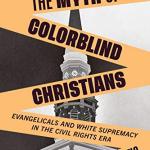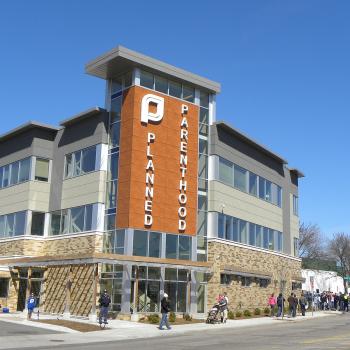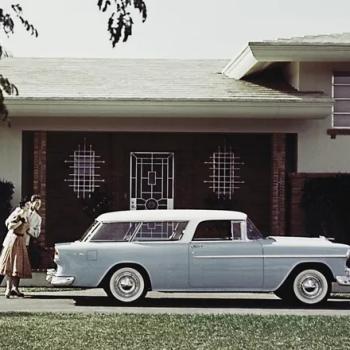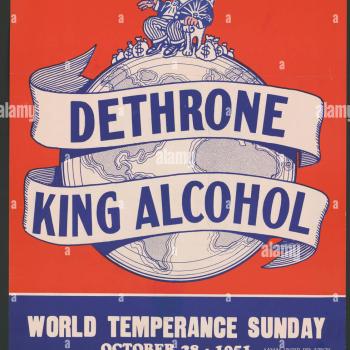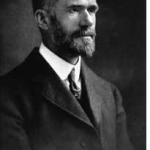This year marks the centennial anniversary of one of the most famous sermons from the culture wars of the 1920s: Harry Emerson Fosdick’s “Shall the Fundamentalists Win?”

The 34-year-old Fosdick, whose eloquent presentation of the modernist cause had already landed him one of the most prestigious pulpits in the nation, was eager to lead the charge against the fundamentalists, who he warned would destroy Christianity if they succeeded in wresting control of the Northern Baptist and Presbyterian denominations from the irenic moderate liberals who did not want to make biblical inerrancy, substitutionary atonement, or a belief in the virgin birth a litmus test for the Christian faith. Fosdick’s excoriation of the fundamentalists has become a classic primary source text on the fundamentalist-modernist controversy of the 1920s, and many college history professors (myself included) have assigned it in our classes alongside one of William Jennings Bryan’s speeches against evolution in order to give students first-hand perspectives on both sides of the debate.
But that debate has not played out quite like Fosdick expected. Now that we have reached the centennial anniversary of this sermon, perhaps it’s time to ask the question: Did the fundamentalists win? The answer is not as clear as anyone would have likely expected at the time.
For the first half-century after Fosdick’s sermon, many observers probably would have concluded that the fundamentalists lost. Fosdick had warned that the fundamentalists were engaged in a hostile takeover of the Northern Baptist and Presbyterian denominations that would, if it succeeded, purge the denominations of those who wanted to harmonize Christianity with modern science and historical criticism of the Bible. Fundamentalists lost their fights in both of those denominations. While small groups of fundamentalists left each of those denominations to found more conservative groups (such as the Orthodox Presbyterian Church and the General Association of Regular Baptist Churches), those denominations were tiny compared to their mainline counterparts, and they rarely made news headlines. The mainline continued to control all of the major seminaries and divinity schools that had been at stake in the intradenominational battles over institutional control. And their political influence appeared to be far stronger – at least if measured by presidential church affiliations or media attention – than the fundamentalists had.
Nor did the anti-evolution forces make much headway in the North. Although several southern states passed laws in the 1920s restricting the teaching of evolution, no state north of the Mason-Dixon line did so. And even if high school biology textbooks across the nation minimized their presentation of evolutionary theory in deference to southern preferences from the 1930s until the early 1960s, college classrooms – with only a few fundamentalist exceptions – taught evolution as accepted fact, and many college-educated Protestants in the North may have assumed that the controversy was more-or-less over. “The anti-evolutionists won the Scopes trial; yet, in a more important sense, they were defeated, overwhelmed by the tide of cosmopolitanism,” the historian William Leuchtenburg wrote in 1958 in his historical survey of the United States in the 1920s. “Ostensibly successful on every front, the political fundamentalists in the 1920s were making a last stand in a lost cause.”

But in the last half-century, the answer to Fosdick’s question “Shall the fundamentalists win?” could quite plausibly be answered in the affirmative. In the late twentieth century, a politically resurgent conservative evangelicalism gained national political influence and replaced a numerically declining mainline Protestantism as the public representation of Protestant Christianity in much of the media. Conservative evangelicals revived the political fights over how human origins were taught in public schools, as well as over what was taught in seminaries. It might have been too late to reclaim Princeton Theological Seminary – let alone the University of Chicago Divinity School – but the conservative evangelicals of the late twentieth century made a successful bid to purge the evolutionists and advocates of historical criticism from places such as Southern Baptist Theological Seminary and capture control of much of divinity training in the United States. And when a Gallup Poll asked Americans in 1983 whether they believed that God had directly created human beings in their present form (as opposed to a divinely guided evolutionary process or an unguided evolution that occurred without divine involvement, which were the two other choices in the survey), a plurality of 44 percent said that indeed, God had directly created humans in their present form, as young-earth creationists insisted. Perhaps the anti-evolutionists had not been quite as defeated as Leuchtenburg assumed.

Yet to say that the fundamentalists won would not exactly be true either. Instead, we have experienced a religious and cultural fragmentation, with a much greater range of opinions than Fosdick’s sermon may have suggested.
Fosdick’s sermon suggested that there were only two alternatives for Christianity: Either it could become irrelevant among educated modern people if fundamentalists insisted on making belief in unscientific ideas (such as special creation or biblical miracles) a litmus test, or it could update its views to accommodate modern science and remain a relevant force as a liberal religion. But, contrary to Fosdick’s expectations, conservative (even fundamentalist) forms of Christianity continued to draw adherents from educated people in the late 20th century and beyond.
The ready acceptance of biblical literalism even in educated circles in the late 20th and early 21st century might have seemed to be a fundamentalist victory, but it was also aided by a religious pluralism that was the result of liberal Protestant epistemology that grounded religious truth claims in personal experience.
In the 1920s, many American fundamentalists, like most 19th-century Protestants, believed that truth claims about religion could be tested empirically and objectively. The Bible’s claims could be tested with historical and scientific evidence, they thought. Liberal Protestants who accepted historical criticism did not agree. Influenced by the German liberal Protestant theology that could be traced back to Friedrich Schleiermacher, they wanted to reground the epistemological foundation for religion in experience.
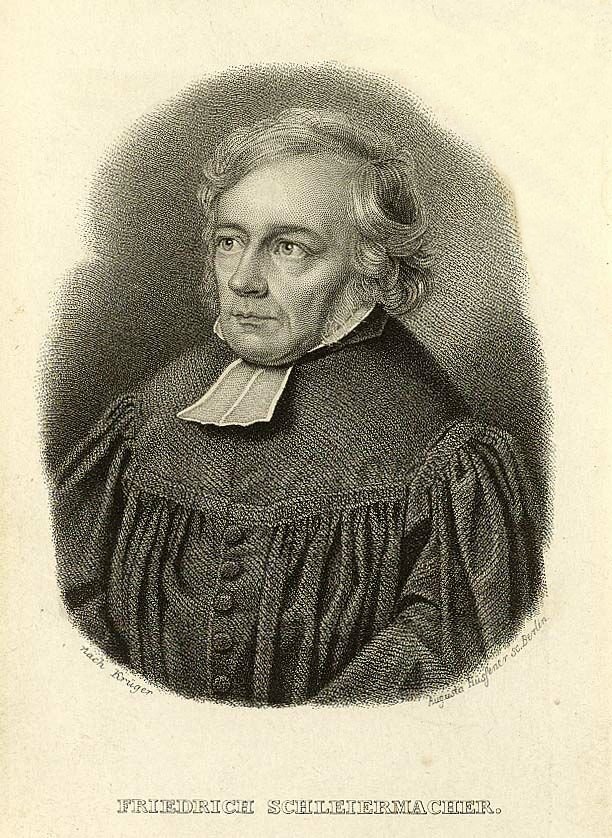
By the end of the 20th century, most Americans of all religious stripes seemed to accept the liberal Protestant idea that religion would have to be grounded in personal experience. The liberal Protestants of the early 20th century had not necessarily believed that the experiential grounding of religion had to be strictly personal; collective societal experience also played a role. Nevertheless, in the individualistic culture of late 20th-century America, the idea that religious faith was based on experiences that were strictly personal became widely accepted among Americans of many religious faiths, as well as those with none at all. That helped “fundamentalists” (or, as most preferred to be called in the late 20th century, “evangelicals”) win a public toleration they had not enjoyed before – at least if they avoided politicizing their religion or using their beliefs as justification for restricting the rights of others, which was not always the case. Fundamentalists might still feel like a beleaguered minority, but their biblical literalism per se rarely elicits the sort of public mockery that Clarence Darrow adopted at the Scopes trial or in which H. L. Mencken engaged. If religion is grounded in personal experience, it’s hard for anyone to critique another’s faith, which has helped theologically conservative Christians at times.
But within Protestantism, the result has been not only a widespread acceptance of religious pluralism (which liberal Protestants welcomed) but also an increasing religious fragmentation. Protestantism is not merely dividing into “fundamentalist” and “liberal” camps, as appeared to be the case in Fosdick’s era; instead, there are a multitude of increasingly isolated camps that cannot form a unified coalition on the contentious cultural issues. Forty years ago, the Southern Baptist Convention was divided between conservatives and moderates. Twenty years ago, those conservatives began experiencing divisions in their own camp over Calvinism. Now even the conservatives who can agree on Calvinist doctrine are splitting with each other over exactly how to interpret and apply gender complementarianism in their congregations or how exactly the denomination should respond to critical race theory. Conservative Presbyterians who agree on Reformed theology and biblical inerrancy are at odds with each other over issues of racial justice.
Across the evangelical spectrum, one no longer finds two clear camps but instead a multitude of siloed parties that disagree with others on both their left and their right. One can find gender complementarian advocates of racial justice, for instance, who are alienated from anti-CRT people on their right and gender egalitarians on their left. One can find social justice-minded (but sexually conservative) gender egalitarians who are alienated from the social justice complementarians on their right because of their stance on women in ministry but also from advocates of LGBTQ rights on their left because of their opposition to same-sex marriage. And this does not even take into account the further divisions that might be occurring as a result of disagreements over COVID protocols or national politics. As a result, evangelicalism appears not merely to be splitting but to be dividing into several different camps. And while the mainline appears to be less divided than evangelicalism, it has not been able to escape the contemporary culture wars unscathed, as the splintering of the Episcopal and United Methodist churches over LGBTQ issues has demonstrated.
The contemporary divisions among Protestants have been exacerbated by a national cultural fragmentation that is partly the result of a loss of epistemological authority beyond the personal. In Fosdick’s day, fundamentalists and modernists were battling over the future theological direction of northern Protestantism and, by extension, the nation’s leading institutions of influence. But today there are not many national religious lodestars over which to battle. American religion has become too fragmented, with too many competing options, for there to be a new fundamentalist-modernist division. Instead of two parties, we have a plethora of options, and it is too early to say whether these competing factions will be able to form unified coalitions with other groups.
So, did the fundamentalists win? They certainly endured for far longer than Fosdick had hoped. But neither the liberals nor the fundamentalists were able to capture control of American Protestantism in the way they had anticipated, and today we’re experiencing a fissiparous splintering of American Protestant Christianity on a scale that neither side in the controversy imagined. If the 1920s is commonly seen as the era when American Protestantism divided into two major factions, perhaps the 2020s will eventually be seen as the moment when American evangelicalism – and, to a certain extent, American Protestantism in general – split into multiple competing groups because of the culture war issues. So, perhaps we’re nearing the moment when the fault line between evangelicals and mainline Protestants will matter less than the multiple fault lines within these two camps. If that is the case, the question “Shall the fundamentalists win?” might be the wrong one to ask. Perhaps the real question now is: Will any faction in American Protestantism win?


